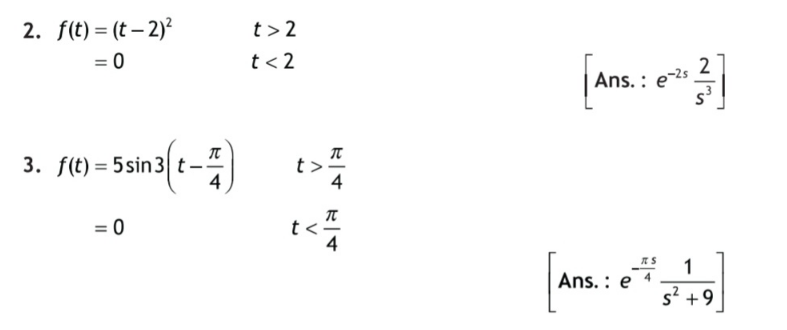
Question and Answers Forum
OthersQuestion and Answers: Page 49





|
Question and Answers Forum |
OthersQuestion and Answers: Page 49 |
| 1+(1/(2!1!))((1/2))^2 +(1/(3!2!))(((1.3)/2^2 ))^2 +(1/(4!3!))(((1.3.5)/2^3 ))^2 +....=(4/π) Prove the above Relation |
| (1/6)Σ_p ^∞ ((logp)/(p^2 −1))=((log1)/π^2 )+((log2)/(4π^2 ))+((log3)/(9π^2 ))+... (p=prime) |

|

|
| (4/(99)) + (7/(999)) + ((11)/(999999)) = ? |
| 1+(1/(16))+(5^2 /(16^2 .2!))+((5^2 .9^2 )/(16^3 .3!))+((5^2 .9^2 .13^2 )/(16^4 .4!))+...=((√π)/(Γ^2 ((3/4))))=F_1 ((1/4),(1/4),1;1) Prove The above relation Where F_1 (Φ,ϕ,γ;μ)=Σ_(n≥0) ^∞ (((Φ)_n (ϕ)_n )/(n!(γ)_n ))μ^n (ζ)_n =ζ(ζ+1)(ζ+2)...(ζ+n−1) |
| 1 + 2 + 3 + 4 + ..... + 100 = ? |
| ∫_0 ^∞ ∫_0 ^∞ ((sinx sin(x+y))/(x(x+y)))dxdy |

|
| ((8 − i)/(3 − 2i)) If the expression above is rewritten in the form a + bi, where a and b are real numbers, what is the value of a? A. 2 B. (8/3) C. 3 D. ((11)/3) |
| 99 × 99 = 9801 999 × 999 = 998001 9999 × 9999 = 99980001 99999 × 99999 = ? 999999 × 999999 = ? |
| If 347.9823 = (3/P) + 4Q + 7R + (9/(10)) + (8/(100)) + (2/S) + (3/T) Then find the value of P + Q + R + S + T |
| (x − a) (x − b) (x − c) ..... (x − z) = ? |
| θ^(••) +(g/l)sinθ=0 Exact form (May include elliptic integral) |
| You have given a positive integer N. Calculate ∫_( 0) ^( ∞) ((e^(2πx^2 ) − 1)/(e^(2πx^2 ) + 1))((1/x) − (x/(N^2 − x^2 ))) dx |
| (1/((1/(x − 3)) + (1/(x + 4)))) If x > 0 and x ≠ 3, which of the following is equivalent to the expresion above? A. 2x + 1 B. x^2 + x − 12 C. ((x^2 + x − 12)/(2x + 1)) D. ((2x + 1)/(x^2 + x −12)) |
| Consider the sequence defined by: 0<u_0 <1 and ∀n∈N, u_(n+1) =u_n −u_n ^2 . 1. Show that the sequence (u_n ) converges. What is its limit ? 2. Show that the series with general term u_n ^2 converges. 3. Show that the series with general terms ln((u_(n+1) /u_n )) and u_n diverge. |

|
| Σ_(n=1) ^∞ (n/(n!))cos(((πn)/5)) |
| (1/(1−(π^2 /(1+π^2 −((2π^2 )/(2+π^2 −((3π^2 )/(3+π^2 −((4π^2 )/(4+π^2 −((5π^2 )/(5+π^2 ....)))))))))))) |
| Some Values .. Σ_(n=−∞) ^∞ e^(−πn^2 ) =(π^(1/4) /(Γ((3/4)))) Σ_(n=−∞) ^∞ e^(−2πn^2 ) =(π^(1/4) /(Γ((3/4)))) (((6+4(√2)))^(1/4) /2) Σ_(n=−∞) ^∞ e^(−6πn^2 ) =(π^(1/4) /(Γ((3/4)))).((√((1)^(1/4) +(3)^(1/4) +(4)^(1/4) +(9)^(1/4) ))/( (√(1728)))) Any Idea to prove ? |
| (π^2 /(1+(π^2 /(3−π^2 +((9π^2 )/(5−3π^2 +((25π^2 )/(7−5π^2 +((49π^( 2) )/(9−7π^2 +((81π^2 )/(11−9π^2 +((121π^2 )/(.....)))))))))))))) |
| Have a great year all of you It is 12.20 am in India (GMT+5.30) (12.20)^T =20.21 💐🌅 |
| (1/(1−(1/(2−((1/2)/((3/2)−((1/3)/((4/3)−((1/4)/((5/4)−((1/5)/((6/5)−...)))))))))))) |

|
| ∫_0 ^(1/2) ((tanh^(−1) x)/( (x)^(1/5) ))dx |